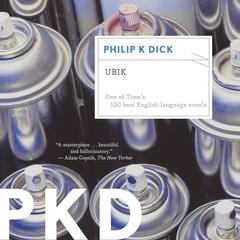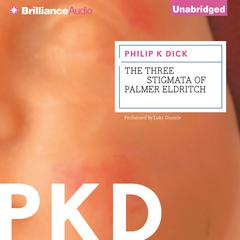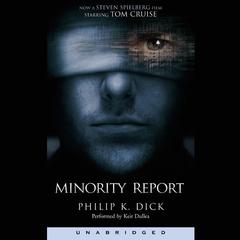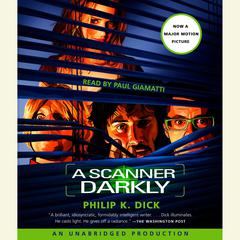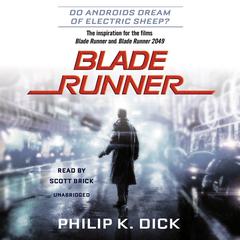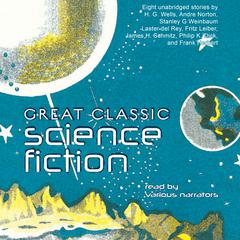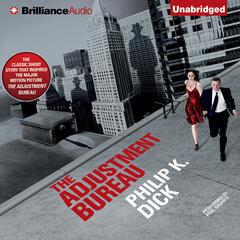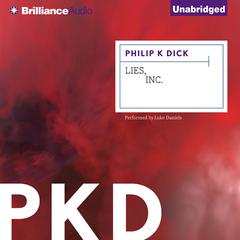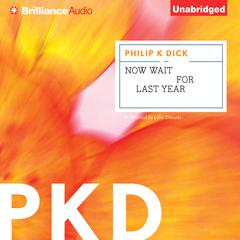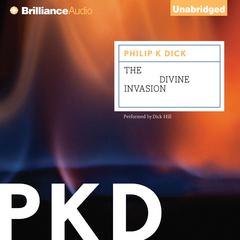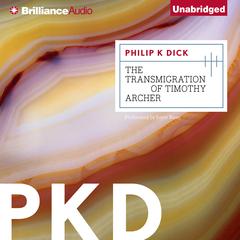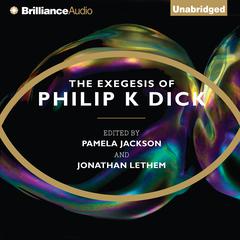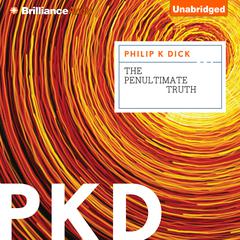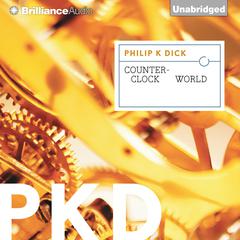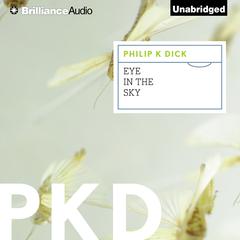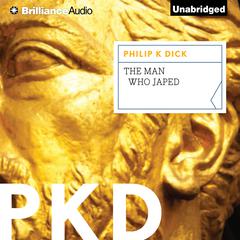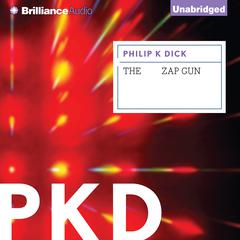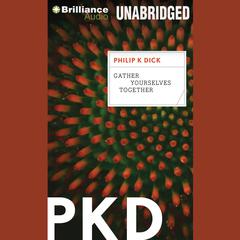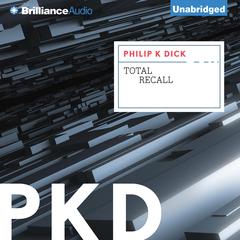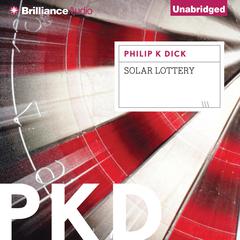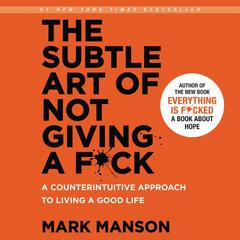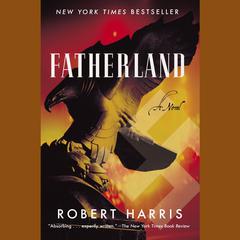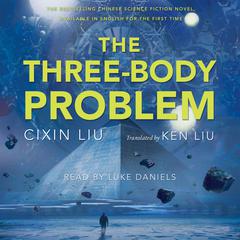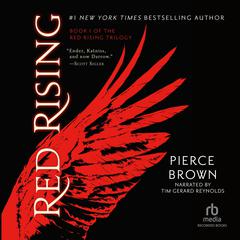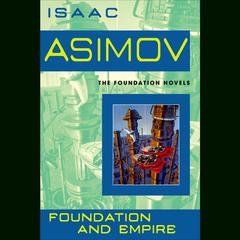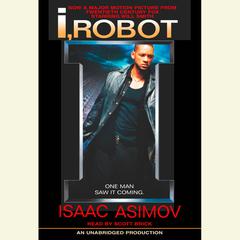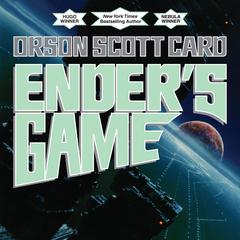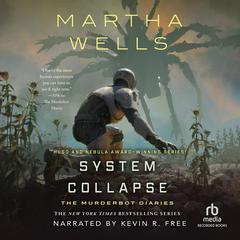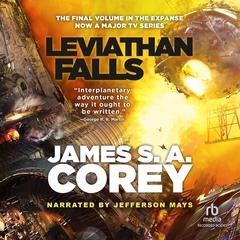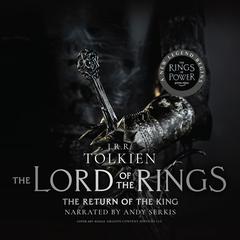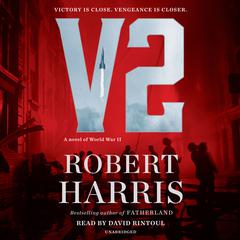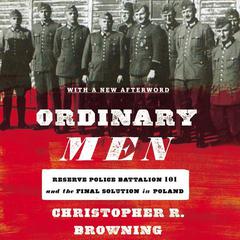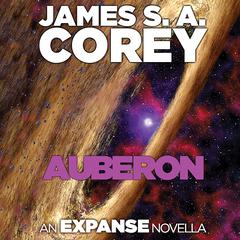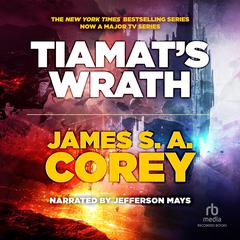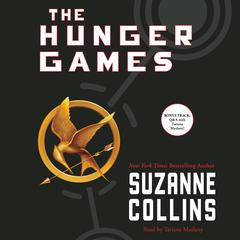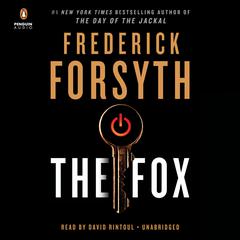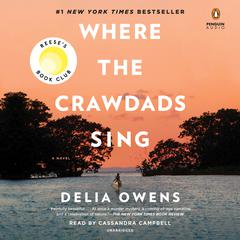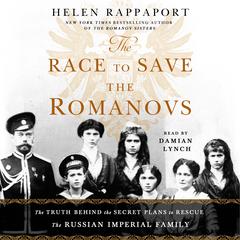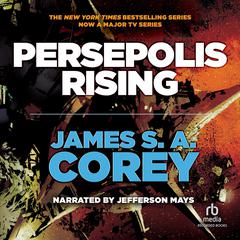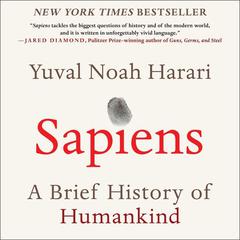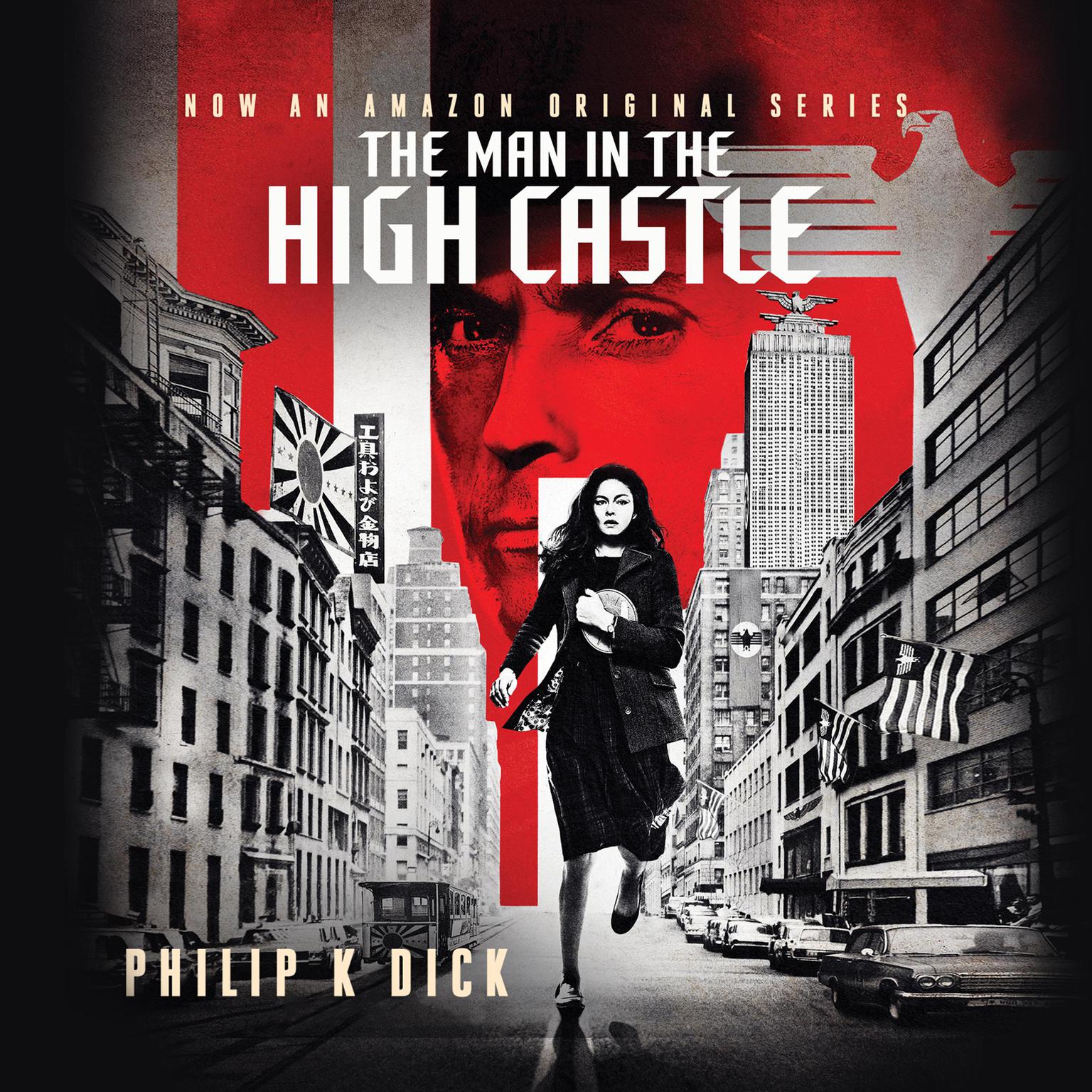 Play Audiobook Sample
Play Audiobook Sample
The Man in the High Castle Audiobook
 Play Audiobook Sample
Play Audiobook Sample
Quick Stats About this Audiobook
Total Audiobook Chapters:
Longest Chapter Length:
Shortest Chapter Length:
Average Chapter Length:
Audiobooks by this Author:
Publisher Description
Now an Amazon Original series
Winner of the Hugo Award
“The single most resonant and carefully imagined book of Dick’s career”—New York Times
It’s America in 1962. Slavery is legal once again. The few Jews who still survive hide under assumed names. In San Francisco, the I Ching is as common as the Yellow Pages. All because some twenty years earlier the United States lost a war—and is now occupied by Nazi Germany and Japan.
This harrowing, Hugo Award–winning novel is the work that established Philip K. Dick as an innovator in science fiction while breaking the barrier between science fiction and the serious novel of ideas. In it Dick offers a haunting vision of history as a nightmare from which it may just be possible to wake.
Download and start listening now!
"This is the first novel I've read by Dick (well, second if you count the comic adaptation of Do Androids Dream of Electric Sheep?, which transcribes Dick's prose verbatim), and in many ways it was the one that interested me least before I started. I don't usually find alternate-history stories terribly compelling; a lot of them strike me as pointless "what-if" exercises that are more concerned with the shuffling around of historical facts than with actually saying something about that history. Dick, however, says plenty. The book starts out as a fairly conventional alternate history, presenting a world in which the Allied powers lose World War II and the Pacific coast becomes a colony of Japan; before long, though, a book within a book is introduced, a kind of mirror image of The Man in the High Castle that posits a world in which the Axis lost the war (though with details different from our own, "actual" history). Finally, late in the novel, we are even given glimpses into a third history, which may--but may not!--be our own. The result is wonderfully dislocating. By refusing to settle on a single alternative, Dick demonstrates how all understandings of history are necessarily contingent and far from inevitable: not just in the usual, "butterfly effect" sense of cause and effect, but in a deeper moral sense as well. The most unsettling, and important, message in this book is not that the roles of "winners" and "losers" in history could have been reversed, but that the roles of "heroes" and "villains" could have been as well; some of the most sympathetic characters in the novel are Japanese, and some of the most reprehensible are American (the Nazis, of course, are assholes in every dimension). Stylistically, I do think the book somewhat suffers a bit from its more realistic setting: Dick's sparse, detached dialogue is perfect for androids and denizens of dystopian wastelands, but when it's being spoken by regular "contemporary" people it...still sounds like it belongs to androids and denizens of dystopian wastelands. In a way, though, maybe that's the point. In this vision of the 20th century, our own world is the wasteland, and we are the androids. I can't say I disagree."
— Zach (4 out of 5 stars)
Quotes
-
“Dick provides an intriguing tale about life and history as it relates to authentic and manufactured reality.”
— Publishers Weekly -
“Many, many alternate history ask how the world would be different if Germany had won World War II. And The Man in the High Castle is among the most well-known books that tackle that question. Set in a version of America that is ruled by Japan and Germany, with a neutral zone in between, this book gets a little loopy, but it’s a classic of the genre.”
— BookRiot
Awards
-
A BookRiot Pick of 15 Great Alternative History Books and Series
-
Winner of the 1963 Hugo Award for Best Novel
-
An iBooks bestseller in Science Fiction & Fantasy
The Man in the High Castle Listener Reviews
- — William Stockwell, 2/12/2023
-
" I selected this book because of the rave reviews. Personally it was a disappointment for me. I don't see what all the raves are about. I feel cheated. "
— Bur, 1/8/2016 -
" Trip-ee. "
— Rob, 2/12/2014 -
" Kept me reading to the end. On the whole i quite liked it, though sometimes i struggled a little. "
— David, 2/9/2014 -
" I enjoyed the various tracks and character development of this story. Also I found the alternate history fascinating. Most of the characters had a dramatic story arch that resulted in significant change by the end. My only complaint is the mysterious ending which throws the reader out of the book with a "this never really happened" feeling. Still I could see myself reading this one again sometime. Dick has impressed me with this mastery of plot and character. "
— Keith, 2/8/2014 -
" Loved the interwoven stories questioning the nature of what is real and what is fake. A really good read. "
— Katie, 1/23/2014 -
" A very interesting book. While it's a little hard to understand the point Dick was trying to get to, the book is intriguing and paints a well-thought out picture of an alternate history. "
— Matt, 1/19/2014 -
" This book was not what I was expecting to say the least. There is lots to like here, but ultimately I felt frustrated with the weird pacing and plot developments. "
— Paul, 1/8/2014 -
" Slightly obscure. Good for science fiction, bad if a statement on the reality vs. truth. "
— Alex, 1/3/2014 -
" Unbelievably depressing. Brilliant. Not only suggests that Germany and Japan really did win WWII, but that it doesn't really matter who did, because we all lose. "
— Sam, 12/6/2013 -
" Made me think for two weeks after I was done. "
— Keith, 12/4/2013 -
" Some of the german words and abbreviations were hard to follow, but I liked the ideas broguht up and thoguht that the whole premise was great. "
— Dan, 11/27/2013 -
" I found it a little confusing whilst reading, but after reflecting on it, it is an extremely clever and well written novel. "
— James, 5/9/2013 -
" I liked the general plot, but the story itself is too fragmented to me. As a result is moves really slow, and doesn't have the suspense that it should, considering the storyline. "
— Carolyn, 4/21/2013 -
" Brilliantes, tiefsinniges Buch. Muss unbedingt auch noch Ubik lesen. "
— Dan, 6/17/2012 -
" Great book, possibly the best piece of genre fiction I've read. Does exactly what a great fantasy novel should - it doesn't waste its time trying to convince the reader of the world in which it exists, it makes the reader believe in it by presenting the story in earnest. "
— Phil, 3/25/2012 -
" I didn't care for this one as much as The Three Stigmata of Palmer Eldritch, but it's undeniably good. "
— Denae, 2/24/2012 -
" Moderately interesting alternative history drama; the drama is realistic enough to be interesting, but dated enough to be depressing. "
— Dave, 5/23/2011 -
" Fantastically written, though confusing at the end. Gives rise to a lot of questions, and I think it's a wider comment about the nature of fiction and reality and how the two intertwine. It has made me want to read more of this guy! "
— Heather, 5/20/2011 -
" This was rather tedious and confusing, but they may just be because I stubbornly refused to read the prologue. <br/> <br/>Some bits were good <br/>Most of it was bad. <br/> <br/>Slightly tedious. "
— Charlotte, 5/8/2011 -
" Excellent book, WELL worth the read. Had you wondering the whole time, and answered just enough questions to make sure it didn't drive you insane! I liked this book alot. "
— Lonnie, 5/2/2011 -
" I read this 40 years ago. Still think about it on occasion. "
— Soli, 4/28/2011 -
" i dont care what anyone says<br/>pkd is amazing<br/>sure his prose maybe isnt the most complex<br/>but his characters really think "
— Colinb, 4/24/2011 -
" A very good alternative history of what could have happened if the United States lost World War II. Like most Philip K. Dick books, I found some of it rather unapproachable. For instance, there are many passages devoted to characters consulting the I-Ching oracle. "
— Brian, 4/23/2011 -
" This magnificent book, as usual in Dick, reminds me to Orwell’s 1984 because of the mass land "Eurasia" which provides the work with a gloomy atmosphere, a gloomy and attractive one, I have to say :). "
— Elena, 4/15/2011 -
" I really liked the book. The ending? I am still a little confused what happened. I think maybe I need a book club helper on this one. :)) <br/> <br/>joel "
— Joel, 4/14/2011
About Philip K. Dick
Philip K. Dick (1928–1982) published thirty-six science fiction novels and 121 short stories in which he explored the essence of what makes man human and the dangers of centralized power. Toward the end of his life, his work turned toward deeply personal, metaphysical questions concerning the nature of God. Eleven novels and short stories have been adapted to film, notably Blade Runner (based on Do Androids Dream of Electric Sheep?), Total Recall, Minority Report, and A Scanner Darkly. The recipient of critical acclaim and numerous awards throughout his career, Dick was inducted into the Science Fiction Hall of Fame in 2005, and in 2007 the Library of America published a selection of his novels in three volumes. His work has been translated into more than twenty-five languages.
About Jeff Cummings
Jeff Cummings, as an audiobook narrator, has won both an Earphones Award and the prestigious Audie Award in 2015 for Best Narration in Science and Technology. He is also a twenty-year veteran of the stage, having worked at many regional theaters across the country, from A Contemporary Theatre in Seattle and the Alliance Theatre in Atlanta to the Utah Shakespeare Festival in Cedar City and the International Mystery Writers’ Festival in Owensboro, Kentucky. He also spent seven seasons with the Oregon Shakespeare Festival.




